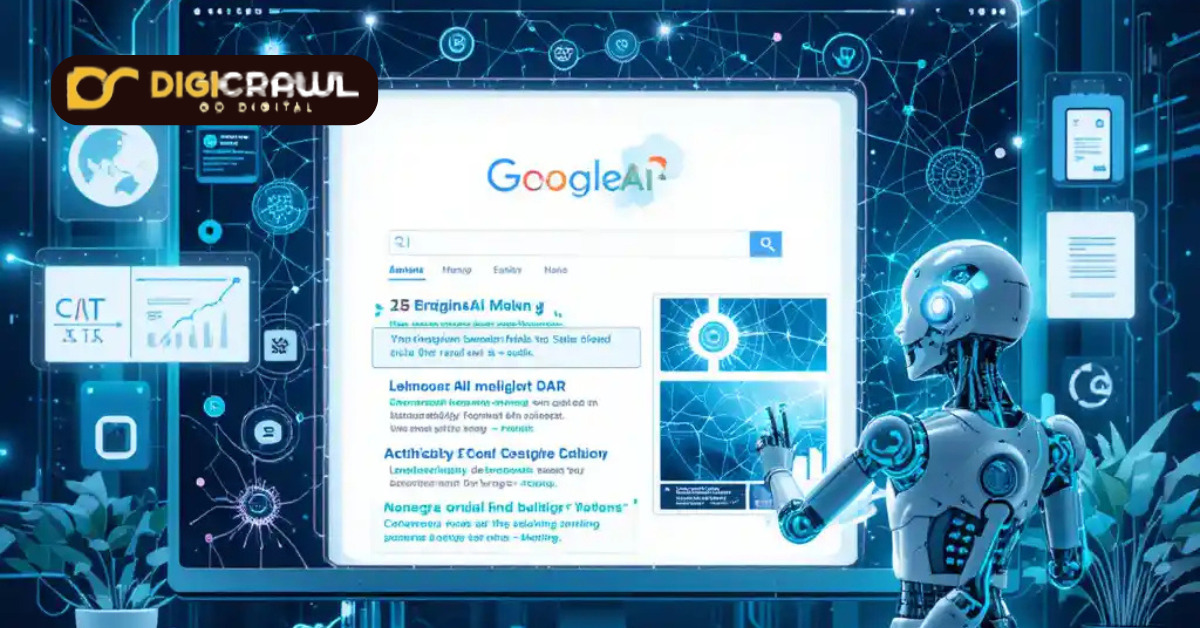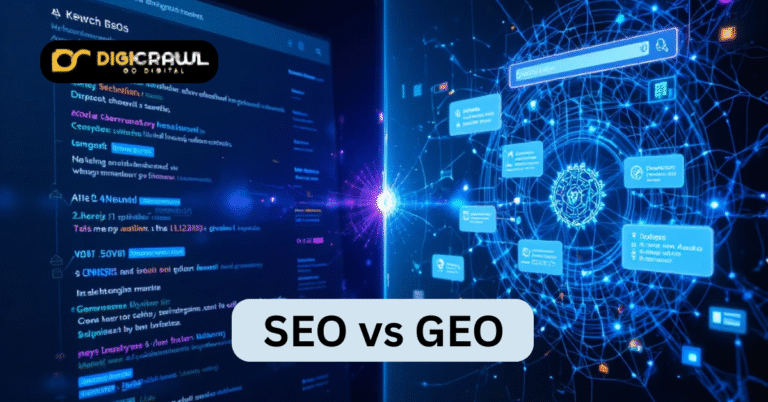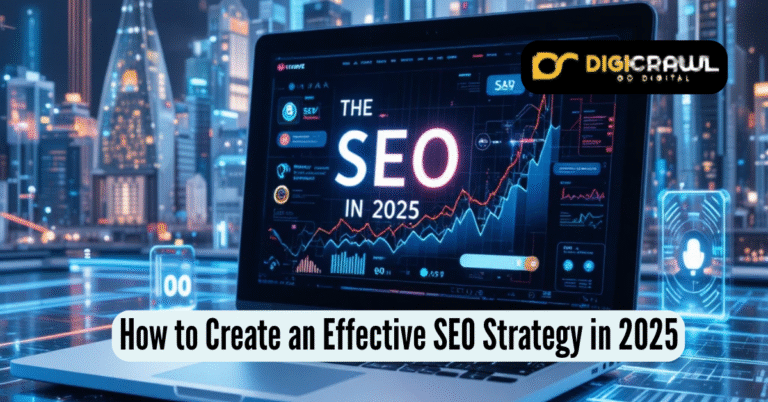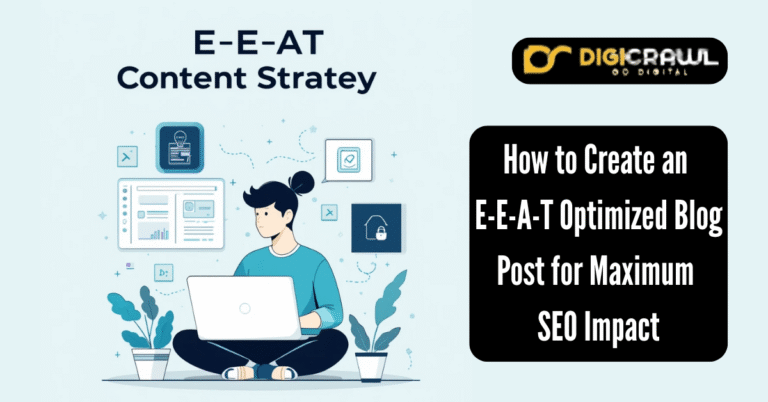How AI Mode and Deep Search Are Transforming SEO: A Deep Dive for Marketers
The past few years have seen search technology evolve faster than most marketers could have predicted. But 2024 and 2025 have marked an especially disruptive turn: the rise of large-scale generative AI in consumer-facing search and the widespread rollout of Deep Search tools. Google’s AI Mode (also known as AI Overview) is now integrated into billions of queries, summarizing results and reducing reliance on traditional blue links. Simultaneously, OpenAI’s Deep Search, Perplexity AI and ChatGPT’s Browse Mode has redefined how users discover, evaluate and consume information.
These shifts are not just academic; they are fundamentally challenging decades of keyword-based optimization and content production frameworks that have been used by SEO professionals.
Below, we’ll unpack how these technologies are reshaping the global SEO landscape and what it means for strategy, workflows and the ethics of content visibility.
From Search Engine to Answer Engine
For years, SEO centered on visibility within a list of ranked pages. In which you used to optimize page content with keywords, built backlinks and ensure structured markup to make sure that your snippet stood out among organic results. While featured snippets and knowledge panels were early signals of change, they ultimately linked users to websites.
But AI Mode and Deep Search have pushed this further. Now in Google’s AI Overview, a query can yield a detailed generative summary by merging multiple sources into a cohesive answer. The links still appear, but they’re far less prominent and OpenAI’s Deep Search takes this even further, producing comprehensive overviews with citations at the bottom, often removing the need to click through at all.
Consider a hypothetical query: “How do I start a dropshipping business in 2025?”
- Traditional Search (2020): Users see a list of top blog posts, YouTube videos and e-commerce guides.
- Google AI Overview (2025): They see a three-paragraph AI-generated answer synthesized from various authority sites with a carousel of smaller links sitting below.
- OpenAI Deep Search: They get an in-depth, multi-section summary with real-time citations, where no single source dominates.
In effect, the search engine is no longer just ranking results; it’s curating and composing answers. Which makes it a seismic shift for discoverability and traffic.
SEO Keyword Strategy Under Pressure
Experienced SEOs have spent years refining keyword clusters, search intent mapping and content hubs to capture long-tail queries. However, AI-powered overviews flatten the distinction between head and long-tail terms. A single generative answer may satisfy both a broad query (“best project management tools”) and a more specific one (“which project management tools are best for remote teams under 10 people?”).
This change forces a reevaluation of keyword-centric tactics:
- Reduced Predictability: Keyword volumes from tools like SEMrush and Ahrefs no longer perfectly predict visibility, as AI overviews aggregate data differently.
- Emphasis on Topical Authority: If your domain isn’t repeatedly cited by AI models, even well-optimized pages can lose traffic.
- Content De-duplication Risk: Because generative AI synthesizes multiple similar pages, producing yet another “ultimate guide” may not earn visibility.
Many SEO teams are shifting toward differentiation and depth, rather than solely targeting volume or intent. Because in AI-generated summaries, original research, first-party data and unique perspectives stand a better chance of being cited within the overview.
Content Creation Workflows: From Scale to Substance
Just a few years ago, many brands operated on a model of high-volume content output. This indicates that the rise of generative AI is reshaping production pipelines:
- Identify keyword gaps.
- Commission articles.
- Optimize them for on-page factors.
- Distribute and build links.
This approach is increasingly insufficient because AI search models like Google’s Gemini and OpenAI’s Deep Search draw from a broad collection of information. They reward authoritative signals and original contributions, not merely optimized text.
For example:
- Perplexity AI emphasizes sources with clear signals of expertise, including author credentials and transparent sourcing.
- ChatGPT Browse Mode mostly highlights government publications, research-backed content and unique primary data.
- Google AI Mode pulls content from publishers with high trust signals (e.g., consistent E-E-A-T factors).
In practice, this has led many SEO teams to blend traditional optimization with editorial credibility efforts:
- Publishing expert interviews.
- Incorporating proprietary statistics.
- Developing interactive tools that cannot be easily summarized in text.
Instead of pure output volume, this shift from scale to substance requires rethinking KPIs. Success is increasingly hinging on whether your content is recognized as an authoritative reference by AI models or not.
Changing User Behavior: Zero-Click, Deep Engagement
Another transformative impact of these tools is on user behavior itself. Traditional SEO assumed that most queries result in a click and even featured snippets drove significant traffic to the source page. But now, more users never click the website because AI summaries satisfy intent within the search experience.
Consider the global rollout of Perplexity AI and the rise of Deep Search assistants:
- Perplexity’s mobile app has seen rapid adoption in Europe and the U.S, with many users preferring it over standard Google queries.
- OpenAI Deep Search, integrated into ChatGPT Plus, produces comprehensive research overviews that are more engaging than a list of blue links.
- Google’s AI Overview is widely being used for quick reference.
This means SEO professionals need to adjust expectations:
- Traffic May Decline: Even if your brand is cited in AI-generated answers, users may never visit your website.
- Brand Visibility Gains Importance: Mentions, citations and on-screen brand presence become as critical as raw sessions.
- Engagement Moves Upstream: More users are forming impressions of your brand before they even reach your site.
These dynamics mirror what happened to news media when social feeds began distributing snippets of articles: while the brand still matters, traditional metrics such as pageviews are declining.
New Discovery Channels and Ranking Signals
AI-driven search is not just about answer summaries; it’s also about alternative discovery paths:
- Chat-based Search Journeys: Tools like ChatGPT Browse Mode and Perplexity encourage iterative queries. In which a user may start with a broad question, refine it in follow-ups and explore it in depth, all within a single interface.
- Dynamic Contextual Ranking: OpenAI Deep Search models adapt citations based on conversational context, not static SERP rankings.
- Citation-Based Reputation: Platforms increasingly favor sources consistently cited by others or identified as canonical in the AI’s training data.
This introduces new challenges for ranking:
- Canonical Attribution: Even if you were the first to publish, if more authoritative sites repeat your insights, the AI may credit them instead.
- Contextual Ranking Fluidity: Unlike Google’s legacy algorithms, AI citation and ranking can vary dynamically, which, to some extent, can be reverse-engineered.
- Indirect Competition: You’re not just competing with peers in your niche, you’re also competing with aggregated content from massive publishers and knowledge bases.
For example, a mid-sized SaaS company producing guides on compliance software might find its content overshadowed by aggregated summaries from Capterra, G2 and government regulatory sites, regardless of the originality of their own research.
Ethical and Regulatory Considerations
The sudden adoption of generative AI in search raises important moral and legal questions. Publishers increasingly question whether their work is being fairly credited, as AI systems provide derivative summaries from existing content.
Considerations include:
- Intellectual Property: Is a generative summary that synthesizes your content a fair use? Several publishers have challenged Google and OpenAI over this practice.
- Misinformation and Bias: AI summaries can accidentally combine outdated or inaccurate data, creating reputational risks if your brand is cited improperly.
- Regulatory Scrutiny: In Europe, regulators are already exploring policies to ensure transparency of AI-generated search results and protect publishers’ rights.
SEO professionals must be prepared to overcome these legal and ethical uncertainties. Some brands are experimenting with strategies to control indexing and access to LLM training. It includes crawler restrictions such as blocking AI crawlers or requiring licensing agreements, but the landscape remains fluid.
Adapting Your SEO Strategy
Given these trends, how should advanced SEO teams adapt?
While there is no universal playbook, certain priorities are emerging from which we can improve your search visibility:
- Focus on Brand Authority: Build reputation signals that AI systems recognize, including credibility, expertise and original contributions.
- Diversify Discovery Channels: Explore visibility in Perplexity AI, ChatGPT plugins and other conversational search tools, instead of relying exclusively on Google.
- Develop Unique Assets: Create content that no one else has created and can’t be easily summarized, also utilize interactive tools, proprietary data and multimedia assets.
- Monitor AI Citations: Regularly audit how your brand appears in AI-generated answers, as this will impact brand perception and demand.
- Invest in First-Party Engagement: As traffic from search may decline with time, you have to deepen relationships with your audience through email, communities and direct subscriptions.
Conclusion: An Inflection Point
AI Mode, Deep Search and generative search interfaces are not just regular updates; they are a shift in search and human behavior. Because the discovery and ranking of content are no longer purely algorithmic or keyword-driven, they are now shaped by large-scale language models trained on vast information available on the open web, synthesizing data insights dynamically.
For experienced SEO professionals, this moment is both challenging and full of opportunities. Those who cling solely to legacy keyword strategies risk diminishing returns. Those who embrace authority-building, content differentiation and brand-first thinking stand to emerge stronger.
As search becomes more conversational, contextual and generative, the real question isn’t whether your content ranks, it’s whether your brand earns a seat at the table where AI crafts the answers.
If you want to stand out in this competitive market and are willing to optimize your website for AI, check out Digicrawl’s advanced digital marketing services in Islamabad. Additionally, our SEO services in Pakistan are the gateway to online success for those running their businesses in Pakistan.






